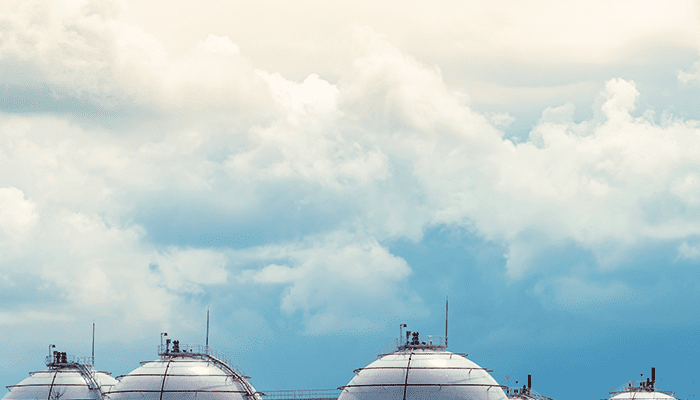What Are The Pros And Cons Of Natural Gas?
What Are The Pros And Cons Of Natural Gas?
Natural gas is one of the most often used energy sources, which is no surprise. Methane and small amounts of other hydrocarbons make up most of it. In addition to heating and cooking, natural gas can also generate electricity. However, like any energy source, natural gas has pros and cons. This article will examine natural gas’ pros and cons in detail.
The Benefits Of Natural Gas
Generally safe:
The process of utilizing technology and the utilization of natural gas in the production of energy is relatively secure. Although there were some incidents in the past, fossil gas usage is not the reason for numerous deaths.It is considered entirely secure compared to the dangers of nuclear power stations, where vast areas of land are polluted by radioactive material, and many individuals could suffer the consequences.
Abundant Supply:
It is plentiful and accessible all over the world. More than a trillion barrels of gas in the US alone have yet to be extracted. Like coal and oil, natural gas has a finite resource essential for a sustainable power source. In the next few years, many locations will await discovery.
Not Dependent On The Weather:
Another benefit of natural gas is that power production is independent of the weather. Instead of alternative energy sources such as solar energy or wind energy, fossil gas production doesn’t require sunshine or wind.
Therefore, is a very stable energy source and can be utilized as a supplement to alternative energy sources until humanity can supply sufficient energy entirely through alternative energy sources.
The Viability Of Renewable Energy Is Critical:
Consider fossil gas as an “intermediate” fuel for the developing renewable energy sector. According to the 2015 report from the Joint Institute for Strategic Studies. By broadening the mix of electricity sources and mitigating the risk brought on by market and regulatory uncertainty, the fossil gas sector and other energy sources may help contribute to a low-carbon, resilient, and dependable electrical grid.
Additionally, EIA projects that fossil gas and renewable energy sources will make up increasing proportions of electricity production. That isn’t likely to happen uniformly, however: In California, the current glut of natural gas, as well as an increase in wind, solar and other sectors of renewable energy, “has depressed power prices and threatened the viability of fossil gas plants,” Reuters announced in June.
Useful For Fertilizer Production:
Natural fuel is famous for heating and energy production. Its components can also be utilized for fertilizer production. Therefore, it could also be helpful for agriculture; however, fertilizers should be utilized sparingly as they could cause significant groundwater and soil contamination.
Cons of Natural Gas
Highly Inflammable:
Natural fuel is a highly explosive substance that could cause more harm, and an accident can occur. Natural gas leaks can lead to explosions or fires when handled poorly. It’s tasteless, colorless, and odorless and can’t be detected by smell.
Since it is highly explosive, improper handling could cause disastrous explosions. That is why many people refrain from using it in their vehicles. The primary issue with fossil fuel is that it has no odor, and leaks are not visible.
Because of this, LPG (Residentially Utilized fuel) is filled with odorants so that, in the case of leaks, detection is simple, and an appropriate course of action is taken. It is also available in gaseous form, making it much more challenging to manage than oil.
Acid rain:
The emission of harmful gasses is also a cause of the development of acid rain. Based on the intensity of acid rain’s emissions, it can cause severe local environmental issues.
For instance, because plants are generally susceptible to acidity levels in the soil, crops may yield less significantly due to acid rain. It could result in severe poverty and hunger, particularly in poorer developing nations where the inhabitants depend on crop yields as their primary food source.
It Pollutes The Natural Environment:
Natural fuel contributes to greenhouse vapor emissions when burned in unsuitable conditions. Because it burns more effectively than other fossil fuels, it is less damaging to the environment. However, fossil fuel is still a pollutant to the environment.
Mining Can Destroy Habitats:
Since Natural fuel was extracted from the ground by mining or fracking, vast land areas must be utilized and processed. That could cause severe habitat destruction as many animals can lose their homes and must relocate. A lot of plants in the affected areas might also be dying off.
Not Easy To Use:
Fossil gas is the fuel of choice, and all components, except methane, must be extracted. It produces many products like hydrocarbons (ethane, propane, etc.) and sulfur, carbon dioxide, water vapor, helium, and nitrogen.
Last Thoughts
In conclusion, natural gas has many advantages as an energy source, including its abundance, affordability, and cleaner burning properties. However, it poses significant environmental risks and can negatively impact public health and safety.
As we continue looking for ways to meet our energy needs while protecting our planet, we must consider the pros and cons of fossil gas and other energy sources. Ultimately, a mix of renewable and non-renewable sources is necessary to meet our energy demands sustainably. If you want to require natural gas in US than contact us. Our agency “US Energy Discounts” provide natural gas services in deregulated states.





